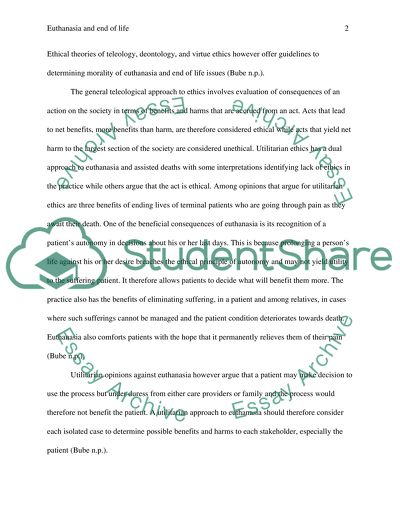Euthanasia and end of life issues Essay Example | Topics and Well Written Essays - 750 words. Retrieved from https://studentshare.org/philosophy/1463382-week
Euthanasia and End of Life Issues Essay Example | Topics and Well Written Essays - 750 Words. https://studentshare.org/philosophy/1463382-week.


